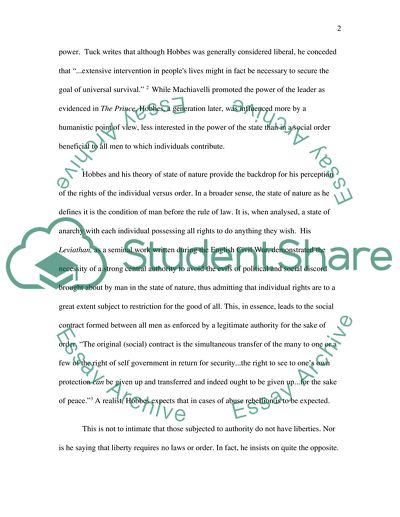Cite this document
(“Machiavelli and Hobbes: Peace of Order or Chaos of Liberty Essay”, n.d.)
Retrieved from https://studentshare.org/philosophy/1558996-to-what-extent-if-any-do-machiavelli-and-hobbes-value-order-above-liberty
Retrieved from https://studentshare.org/philosophy/1558996-to-what-extent-if-any-do-machiavelli-and-hobbes-value-order-above-liberty
(Machiavelli and Hobbes: Peace of Order or Chaos of Liberty Essay)
https://studentshare.org/philosophy/1558996-to-what-extent-if-any-do-machiavelli-and-hobbes-value-order-above-liberty.
https://studentshare.org/philosophy/1558996-to-what-extent-if-any-do-machiavelli-and-hobbes-value-order-above-liberty.
“Machiavelli and Hobbes: Peace of Order or Chaos of Liberty Essay”, n.d. https://studentshare.org/philosophy/1558996-to-what-extent-if-any-do-machiavelli-and-hobbes-value-order-above-liberty.


